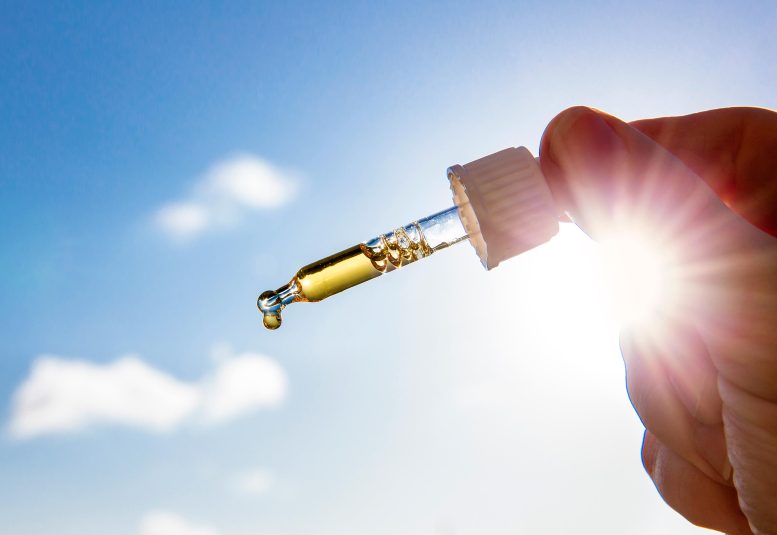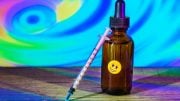
In a study involving 149 participants with early psychosis, six months of vitamin D supplementation did not alleviate mental or physical health symptoms, although it did increase vitamin D levels. Credit: Helin Loik-Tomson
A study found that vitamin D supplements did not benefit early psychosis patients over six months, though deficiencies were common, suggesting a need for focused public health policies.
New research involving 149 participants found no evidence that vitamin D supplementation taken over six months improves mental or physical health symptoms in people with psychosis. Participants did however show high rates of vitamin D deficiency which could have longer term health impacts not captured in the study, according to researchers.
The DFEND Trial, published in JAMA Psychiatry, involved 149 participants with early psychosis, who were randomized to receive vitamin D or a placebo for six months.
The study was funded by the Stanley Medical Research Institute and received support from the National Institute for Health Research (NIHR) Maudsley Biomedical Research Centre, King’s College London and the NIHR Applied Research Collaboration (ARC) South London.
While the study showed no evidence of vitamin D supplementation improving physical or mental health symptoms, it revealed 74.6% of participants had insufficient or deficient vitamin D levels, with that figure rising to 93.4% among ethnic minority participants.
Vitamin D deficiency is more common in people with psychosis than the general population. This is thought to result from poor general health associated with inactive lifestyles, less exposure to the sun and poor general nutrition. Animal experiments have linked low vitamin D with changes in the brain, triggering speculation that vitamin D supplementation could improve mental health.
No previous studies have examined vitamin D supplementation in people with first episode psychosis, a group with high rates of vitamin D deficiency (42%) and who may be more responsive to supplementation than those with established psychosis.
The study’s lead author Professor Fiona Gaughran, Professor of Physical Health and Clinical Therapeutics at the Institute of Psychiatry, Psychology & Neuroscience, King’s College London, and Consultant Psychiatrist at the National Psychosis Unit at the South London and Maudsley NHS Foundation Trust said: “While we didn’t show any effect of supplementing with vitamin D on mental or physical health over a six-month period in people with early psychosis, the rates of vitamin D insufficiency and deficiency in the group overall were very high, this state being almost universal in participants from Black or other minority racial or ethnic groups. Giving the vitamin D supplements increased vitamin D levels and was safe.
“These very high rates of vitamin deficiency and insufficiency may have longer-term negative health impacts which we have not measured, so raising awareness of the need to optimize vitamin D in people with psychosis is important. Future public health strategies should acknowledge the high risk of vitamin D insufficiency and deficiency in people with psychosis and consider any reasonable policy adjustments which may be needed to address this over and above general population guidance.”
The study recruited participants aged 18 to 65 between 2016 and 2019 from five NHS trusts in England: South London and Maudsley NHS Foundation Trust, Southern Health NHS Foundation Trust, Cheshire and Wirral Partnership NHS Foundation Trust, Kent and Medway NHS and Social Care Partnership Trust and South West London and St George’s Mental Health NHS Trust.
Participants were randomized to receive 6ml of vitamin D or a placebo administered by researchers in monthly doses with an oral syringe each month. Both researchers and participants were not told which they would receive, to avoid bias.
The researchers assessed participants after three and six months to check for any changes in their psychosis symptoms, with mood, function and cardiometabolic risk factors also measured at six months.
Professor John McGrath of Queensland Brain Institute, University of Queensland, Brisbane, Australia, said: “While animal studies indicate that low vitamin D during adulthood can alter brain functioning, the DFEND study did not find evidence that vitamin D supplementation helped people with early psychosis. This is disappointing, but we will continue to look for new candidate treatments for psychosis – this can be a very disabling illness and our current treatments are suboptimal.”
Reference: “Effect of Vitamin D Supplementation on Outcomes in People with Early Psychosis: The DFEND Randomised Clinical Trial” by Fiona Gaughran, MD; Dominic Stringer, BSc; Gabriella Wojewodka, PhD; Sabine Landau, PhD; Shubulade Smith, PhD; Poonam Gardner-Sood, PhD; David Taylor, PhD; Harriet Jordan, MSc; Eromona Whiskey, PhD; Amir Krivoy, MD; Simone Ciufolini, PhD; Brendon Stubbs, PhD; Cecilia Casetta, MD; Julie Williams, PhD; Susan Moore, MB; Lauren Allen, MSc; Shanaya Rathod, MD; Andrew Boardman, MB; Rehab Khalifa, MB; Mudasir Firdosi, MB; Philip McGuire, PhD; Michael Berk, PhD and John McGrath, PhD, 28 December 2021, JAMA Network Open.
DOI: 10.1001/jamanetworkopen.2021.40858









I have to say that I question the validity of this study. Reading the study, it says “One dose was 6 mL of the active product, equivalent to 120 000 IU of vitamin D3, or 6 mL of placebo and was administered orally in a graduated syringe by a trained researcher (P.G.-S., H.J., S.C., B.S., C.C., J.W., and L.A.) monthly for 6 months, who visually assessed intervention adherence.”
So, if I’m reading this correctly, it was administered once a month for 6 months…and, assuming by ‘month’ they mean 30 days, that’s the equivalent of 4000iu per day – except that it wasn’t administered daily, meaning there was an extreme peak of D, followed by 29 days of no D being given.
As someone who had to start taking D supplements for Polymorphous Light Eruption (meaning I can’t be out in the sun without skin covering and/or sunscreen, which prevents natural formation of D by the body) I know that it’s important to take the D daily…and I take between 5,000iu and 10,000iu every day.
When I started taking it, blood tests showed I was quite deficient in D (which the study says is true of the subjects in the study (and is true of a majority of people in the US, as well). After taking my supplements for a few months, I noticed that my mental function was improving…but it took at least a year before I felt it had leveled off. The 5000iu to 10,000iu that I take now is a maintenance dose, which keeps my blood levels in the range of 75 ng/ml – prior to reaching that level, higher doses (for brief periods) were necessary. The medical profession says that 12ng/ml is Low, 30ng/ml to 50ng/ml is Adequate and 125ng/ml is High. I choose to believe that we should be somewhere between the high end of ‘Adequate’ and below ‘High’ – and the midpoint of that would be 87.5ng/ml. ‘Adequate’ simply means that there is no evidence of significant negative effects (such as Rickets) due to lack of it…not that it’s a good functional level for the body.
It appears to me that the people running the study didn’t structure it properly – including not focusing on the actual blood levels instead of the amount of D administered, which is a problem common to nearly every study of vitamin D that I’ve seen.
It’s the actual blood levels that matter – and the amount that needs to be taken to achieve suitable levels will vary depending on where the person’s levels were at the start, how much natural D they create naturally from the sun and other factors.
I’d like to see a better constructed study that actually tracked blood levels – the results may be different…though, of course, they may not, but we won’t know until it’s done.